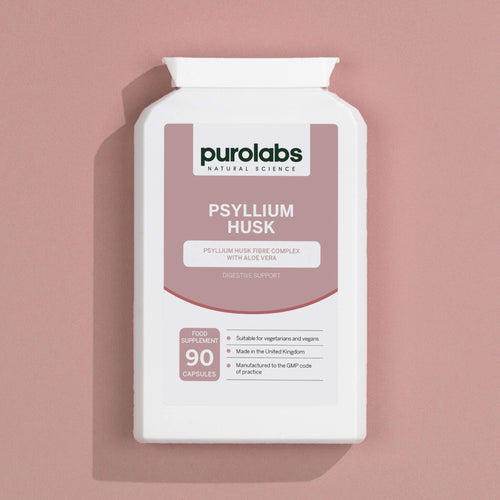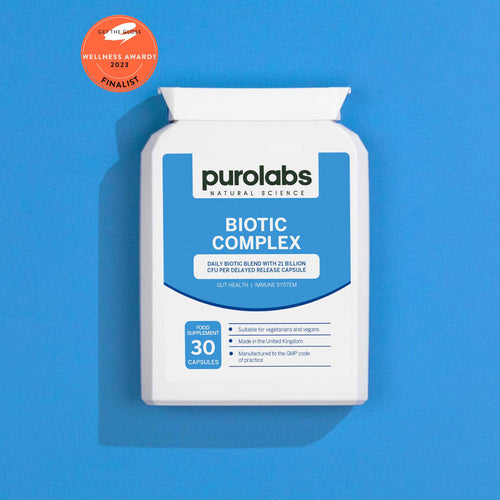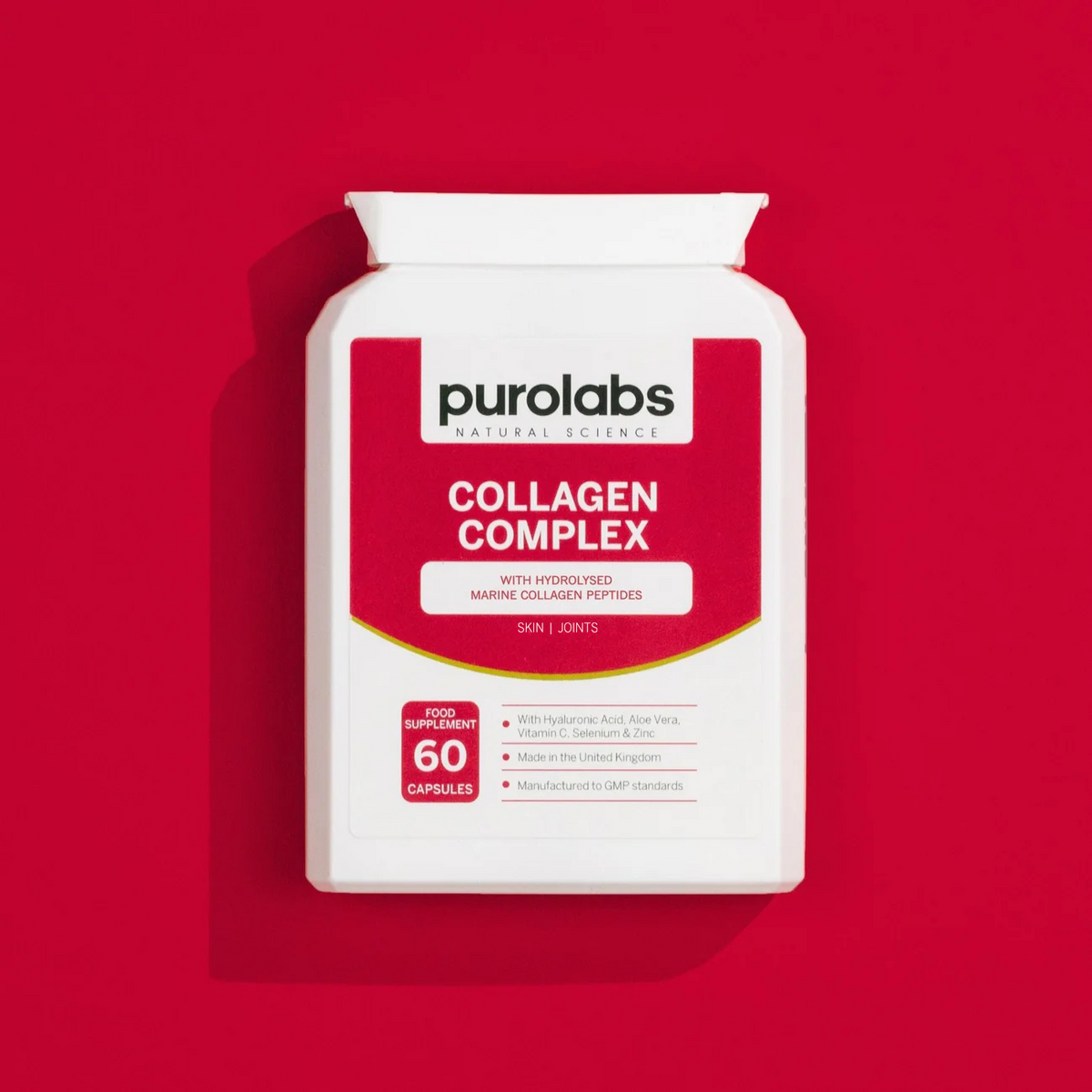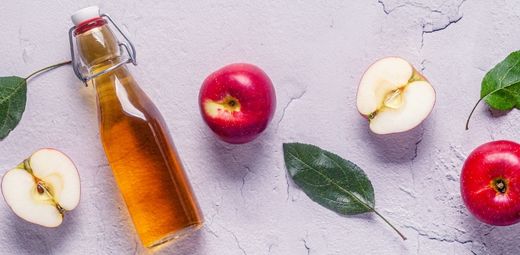Whether you’re into holistic nutrition or purely focused on scientific data, the gut is universally considered one of the most important drivers of overall health.
A happy thriving gut has been shown to positively impact1:
- Metabolic health
- Wellbeing
- Inflammation
- Cognitive function and preservation
- Weight management
- Autoimmune conditions
- Skin health…
The list really does go on. Whatever field a nutritionist specialises in, they must be clued up on the gut and how to support it as it does impact many areas of health and overall wellbeing.
This brings us to IBS, an incredibly common and complex condition, affecting up to a third of the UK adult population2.
It is commonly diagnosed after relative gut testing has been carried out to rule out other gastroenteric conditions, therefore it is known as a syndrome.
There is no test out there that can categorically confirm IBS, making it a diagnosis provided at the point where there is no other explanation. I imagine IBS suffering readers of this post to nod their heads in agreement…I understand that feeling.
Clients commonly report a feeling of varying symptom severity over time, without a clear reason why making the condition incredibly confusing for some. Symptoms range from bloating and indigestion, to abdominal pain with varying bowel movements from regular diarrhoea to constipation3.
The foods we eat, have the biggest impact on our gut health4, therefore, let’s explore a few IBS-friendly foods…
Water
Always start with the basics.
Water is a fundamental part of your diet that you can increase, with studies supporting its role in managing the many common and unpleasant symptoms of IBS5.
Water helps to ‘loosen’ bowels, allowing for food to travel easier through the digestive tract, helping to reduce the pain and abdominal discomfort associated, and to help reduce constipation.
Aim to increase water intake to 2 litres daily minimum, to give your digestive tract the ‘lubrication’ it needs to help pass contents through it with ease.
Ginger
Ginger is considered a prokinetic6, meaning that it stimulates peristalsis, which involves the muscles of the digestive tract contracting to move food along. For those suffering from constipation dominant IBS (IBS-C), ginger is a fantastic addition to your daily diet.
Ginger is a versatile ingredient and can be added to sweet or savoury dishes. You can add a small thumb-sized piece to your morning smoothie or add it to your curries, stir fry and slow cook for a warming fiery kick.
‘Bitter’ Foods
Bitter-tasting foods stimulate gastric juices within the digestive tract to help aid digestion.
The bitter taste signals the tastebuds to let our gut know to prepare for food. This signal stimulates the liver to produce bile, which then enters the stomach from the gallbladder to help break down food.
Bloating and abdominal pain can result from undigested foods in the gut as foods require ‘breaking down’ to move through each stage of digestion. When foods aren’t broken down adequately, this hinders transit time.
If food transit slows down, this leads to food sitting in the stomach and effectively ‘fermenting’ causing a release of gases, leading to bloating and abdominal distention.
Increase daily intake of bitter foods like rockets, turmeric, cabbage, kale, and artichoke which are great for stimulating digestion. Just remember that if it’s bitter (and in date), chances are it’s great for digestion.
Soluble Fibre
There are two types of fibre to consider:
- Insoluble fibre (a fibre that doesn’t dissolve in fluid) has been shown to potentially exacerbate IBS symptoms.
- Soluble fibre, however, has been shown to have antispasmodic effects, reducing contractions and abdominal pain in IBS sufferers. It has also been proven to help reduce constipation7.
Psyllium husk is a soluble fibre that has been studied for easing IBS symptoms8. Start off with 1 tablespoon in your porridge or cereal in the morning and see how your gut responds. Slowly built to 2-3 tablespoons daily for therapeutic benefits.

Psyllium Husk
Include more of the below high soluble fibre foods in your daily diet9:
- Psyllium husk
- Flaxseeds
- Almonds
- Oats
- Barley
- Lentils & legumes
- Sweet potato
Wholefoods
It is crucial to reduce any inflammatory response in the gut to help manage IBS, and processed foods are infamously known to trigger an inflammatory response in the body10.
Processed foods contain inflammatory oils, and high concentrations of sodium and can include added chemicals that our body may find hard to digest.
Home-cooked meals, made from natural ingredients will feed your microbiome, provide essential nutrients required for a happy gut and help to nourish and support gut function.
Probiotic Foods
There are studies confirming probiotics' beneficial impact on microbiome health11, however, depending on the cause of your IBS, probiotics can either significantly support the gut or further exacerbate symptoms. This further adds to the oh-so confusing and complex nature of the condition.

Biotic Complex
To ‘test’ whether probiotics may help your particular case of IBS, start out with small portions of the below foods (only sample one a day) for several days to see how your gut responds. If you experience noticeable abdominal pain, distension, or flatulence then it may be advisable to limit your intake:
- Sauerkraut
- Kimchi
- Kefir
- Probiotic yoghurt
- Tempeh
- Kombucha
There Is No ‘One’ Rule for IBS
What makes IBS complex is that there is no real list of foods to avoid to ‘cure’ you. The FODMAP diet is a standardised food avoidance list recommended to help those with IBS manage their symptoms, but it is only designed for the short term. Evidence supports the notion that it is not an ideal diet to follow over the long term as its restrictive nature impacts microbiome health, which everyone (especially IBS sufferers) needs to focus on12.
Another possible explanation that has cropped up in recent years as a significant driver of IBS is a condition called SIBO (small intestinal bacterial overgrowth) 13. One possible way to determine whether this could be an underlying driver for you is to ask yourself how you respond to foods such as garlic, onion and fermented foods.
SIBO is a condition which requires its own post, however, if you have tried these foods to help with your IBS and you ‘feel’ worse, then do explore further with the help of a licensed practitioner.
If you have suffered with IBS for years without relief or your symptoms are particularly pervasive, it is not a condition that you simply must ‘live with’. Reach out to a qualified health practitioner for targeted and personalised support.

 Beauty
Beauty
 Bone Health
Bone Health
 Brain Health
Brain Health
 Energy
Energy
 Eye Health
Eye Health
 Gut Health
Gut Health
 Hair
Hair
 Hormonal Health
Hormonal Health
 Heart Health
Heart Health
 Immunity
Immunity
 Joints
Joints
 Menopause
Menopause
 Pregnancy
Pregnancy
 Kids
Kids
 Sleep
Sleep
 Stress & Mood
Stress & Mood




















